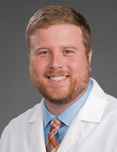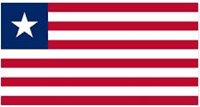Andrew Mullin
 Andrew is a second-year medical student at Wake Forest University. He was born and raised in Cincinnati, OH before moving to St. Louis to study biology and anthropology at Washington University. It was during college that Andrew developed a passion for tropical medicine and global health by supplementing his public health coursework with field and lab work researching Chagas disease, lymphatic filariasis and diarrheal illnesses. These experiences led Andrew to join the United States Peace Corps, where he served for two years as a Community Health Specialist in Togo. While in Togo, Andrew worked on projects related to malaria prevention and education, polio eradication and HIV awareness and prevention. It was during his time in the Peace Corps that Andrew decided to attend medical school in order to pursue his passion in tropical medicine. He plans to complete a residency in internal medicine followed by a fellowship in infectious disease. In his free time, Andrew enjoys playing soccer and basketball and hiking in North Carolina’s state parks with his wife and their two dogs.
Andrew is a second-year medical student at Wake Forest University. He was born and raised in Cincinnati, OH before moving to St. Louis to study biology and anthropology at Washington University. It was during college that Andrew developed a passion for tropical medicine and global health by supplementing his public health coursework with field and lab work researching Chagas disease, lymphatic filariasis and diarrheal illnesses. These experiences led Andrew to join the United States Peace Corps, where he served for two years as a Community Health Specialist in Togo. While in Togo, Andrew worked on projects related to malaria prevention and education, polio eradication and HIV awareness and prevention. It was during his time in the Peace Corps that Andrew decided to attend medical school in order to pursue his passion in tropical medicine. He plans to complete a residency in internal medicine followed by a fellowship in infectious disease. In his free time, Andrew enjoys playing soccer and basketball and hiking in North Carolina’s state parks with his wife and their two dogs.
 Project: "An Observational Study of Sepsis in Liberia: Austere Environments Consortium for Enhanced Sepsis Outcomes (ACESO)"
Project: "An Observational Study of Sepsis in Liberia: Austere Environments Consortium for Enhanced Sepsis Outcomes (ACESO)"
June 1, 2016 - August 1, 2016
Liberia
What does the Kean Fellowship mean to you?
I am incredibly honored to be named as a 2016 Kean fellow. The financial aspect of the award will allow me to stay at my research site for a longer period of time to gain a deeper understanding for the needs and capacities of Phebe Hospital (Liberia). By better knowing the area and the people working here I believe that our project will have a greater impact with less logistical issues as the study gets under way. I am also grateful for the support and mentorship of the ASTMH community. I look forward to connecting with fellow students as well as researchers and physicians through the opportunities granted by the Kean Fellowship.
What do you anticipate learning?
We are starting this project from scratch so I will need to learn how the Liberian healthcare system, the hospital and the patients all come together in order to understand how we can insert our research into that system in the safest and most efficient way. I will also spend a good amount of time shadowing clinicians and surgeons, which will greatly aid my medical education, especially my clinical reasoning skills as advanced diagnostics are not available.
What interests you about tropical medicine and what problems are you interested in solving?
Tropical medicine is often thought of as new and exotic diseases that one would not usually see in the United States. This had been my initial view on the subject and it was not until I was on the ground trying to implement projects with the Peace Corps that I realized that much of tropical medicine research relates to capacity building, behavior change and resource management, as well as the scientific knowledge gained. Phebe Hospital is incredibly limited in human and physical resources. Diagnostic tests that would be routine in the smallest of clinics in the United States are unavailable here. Our research in Liberia will contribute to the clinical data concerning the management of sepsis, but we will also aid a very resource limited community as it recovers from civil war and the Ebola epidemic.